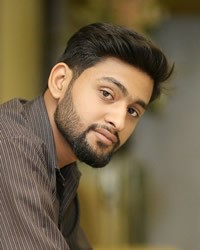Urdu is a major world language, closely related to Hindi. In fact, it is a Persianized version of Hindi, widely spoken in northern India and Pakistan. One can also call those who speak Urdu the Urdu people. Urdu is the 11th most spoken language in the world with 170 million speakers. The Urdu belong to the Indo-Aryan people who originated near Delhi, India. Aryan tribes entered India about 1500 BC mixing with Mongolians, Greeks and Huns. Muslim influence promoted the linguistic change out of which the Urdu language eventually developed. In the Partition of 1947 millions of Urdu Muslims fled India and moved to Pakistan. These Urdu speakers have moved to many nations of the world including Australia. One cannot say the Urdu "people" of Australia. Using the words Urdu "peoples" of Australia would be far more correct. Thousands of Urdu speakers of many different people groups have made their home in Australia. The two things that unite these peoples are their common language and the Islamic religion.
The Urdu speakers of Australia are a highly diverse group. In India and Pakistan, they would be labeled completely different people groups. Their language and religion have brought them together in Australia. The vast majority continue to use Urdu in their homes and to practice Islam. In their native lands Urdu men may have more than one wife. It is legal to only have one wife in Australia. The husband or father is the head of the Urdu family. The wife and mother concentrates on taking care of the children and running the home. Urdu families tend to have more children than other Australian citizens. Traditionally, the parents chose the spouse of their son or daughter. Today more and more young people are choosing their mate with their parents' permission. A large extended family living under one roof is common in Pakistan. But in Australia nuclear families are the norm. The educated Urdu have a middle or upper class lifestyle. They have taken advantage of Australia's education system and became professionals in business, trade, medicine, science, and in education. Many Urdu work in businesses such as restaurants, retail, factories and construction. Recently arrived Urdu have a more difficult time finding jobs in order to meet the needs of their family.
The term Urdu does not adequately describe the Urdu people as such but is merely a language distinction.
The Urdu people in Australia are Sunni, the largest branch of Islam. They try to obey the teachings of the Koran and the prophet Mohammad. They believe that by following the Five Pillars of Islam that they will attain heaven when they die. However, Allah, the supreme God of the universe, determines who enters paradise. Sunnis pray five times a day facing Mecca. They fast the month of Ramadan. They attend mosque services on Friday. If a Muslim has the means, he or she will make a pilgrimage to Mecca once in his or her lifetime. Muslims are also prohibited from drinking alcohol, eating pork, gambling, stealing, and deceiving. The two main holidays for Sunni Muslims are Eid al Fitr, the breaking of the monthly fast and Eid al Adha, the celebration of Abraham's willingness to sacrifice his son to Allah.
The newly arrived Urdu need help in securing housing, jobs and in learning English. Their children need support in attending school. Believers can help meet those needs. Most of all the Urdu must come to understand that Isa or Jesus is much more than the prophet. He is the Son of God and Savior of the world.
Pray that Australian believers will reach out to the Urdu people. Pray for spiritual hunger among the Urdu leaders in Australia that will give them the willingness to seek and find Jesus Christ no matter how much it costs them in their community. Pray for a Disciple Making Movement among Urdu speakers in Australia in this decade. Ask the Lord to provide more Christian literature and resources in the Urdu language.
Scripture Prayers for the Urdu in Australia.
https://en.wikipedia.org/wiki/Overseas_Pakistani
https://en.wikipedia.org/wiki/Urdu-speaking_people
| Profile Source: Joshua Project |











